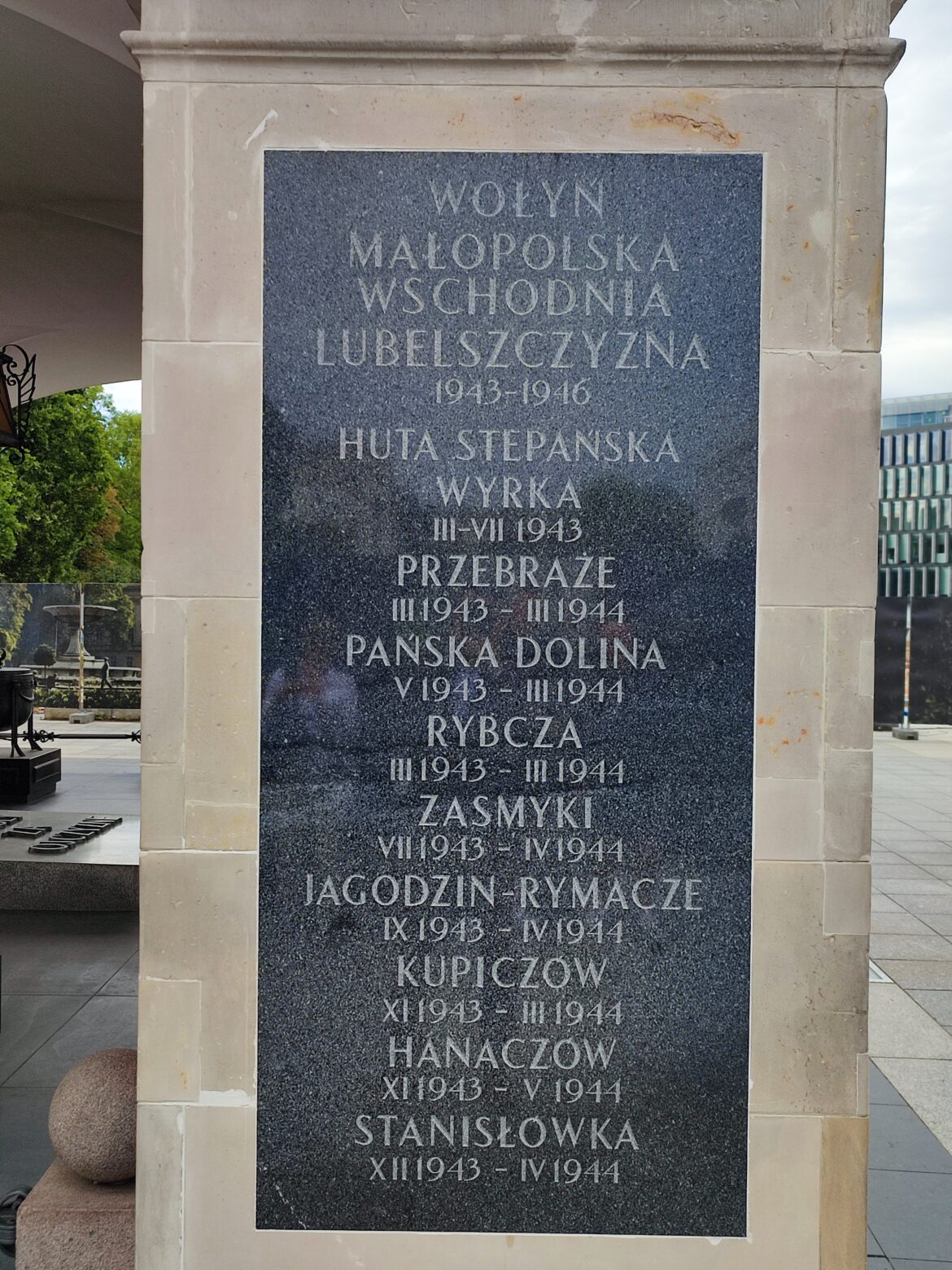The Volhynian genocide was a mass murder carried out by Ukrainian nationalists and so-called “hatchet men”. Between 1943 and 1945, these groups ruthlessly murdered more than 100,000 Poles living in the southern part of the Eastern Borderlands of the Second Polish Republic, which was under German occupation. Thousands of Jews and representatives of other nationalities, including Righteous Ukrainians, were also killed.
The population initially had no means of defence. With time, Poles began to organise outposts and then self-defence bases. One such rural resistance centre, established in March 1943, was Przebraże (now Hajowe). At that time, news of the first wave of murders of Poles began to arrive from further surrounding areas. Initially, a small detachment of about 20 people was formed in this village, which grew with the intensity of the Ukrainian threat, reaching over a thousand people at its peak. The fortifications were based on an expanding complex of trenches, natural obstacles, earth and wood embankments and dugouts, protected by barbed wire. They stretched over a 20-kilometre stretch. Unfortunately, the occupying German administration did not accept the possession of any weapons by Poles, but it was only due to the wave of chaos caused by criminal Ukrainian actions in the countryside that they were reluctant to issue permits for trace firearms. Rifles were therefore secretly purchased from German and Hungarian soldiers or obtained by searching the battlefields of 1939 and 1941 and in battle. A field gunsmith’s shop was also set up.
From July to the end of August 1943, the Ukrainian Insurgent Army launched three attacks on Przebraże. During the last and largest attack, well-armed UPA men numbering around 6,000 and a second number of hatchet men furiously attacked the fortifications. However, a group of defenders managed to attack them from behind and, thanks to a simultaneous counter-attack from the main positions, panic crept into the enemy ranks. The defenders of Przebraże were victorious.
Lieutenant Henryk Cybulski proved to be an important figure in the defence of the heroic village. After taking up the post of military commander of the base, he improved the fortification system, took charge of obtaining the necessary resources and led raids into enemy territory. Together with the civilian commandant, Ludwik Malinowski, he kept up the morale of the defenders. Between about 20,000 Poles took refuge in Przebraż and avoided death.





